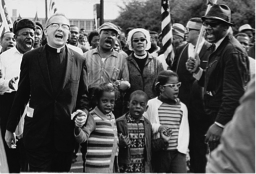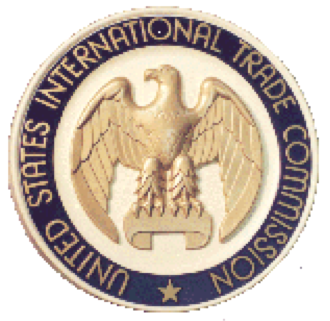Newsletter Issue 93 -November 2016
In this issue:
Ask Dr. Copyright
The liberation of 'We Shall Overcome'
The Protectionist Patent System
Ask Dr. Copyright ...
Dear Doc:
RAH, RAH, REE, KICK 'EM IN THE KNEE
RAH, RAH, RASS, KICK 'EM IN THE OTHER KNEE!!!!!
YAAAAAAYYYYY! GO TEAM!!!!!
Uh...oh yeah! I got a question... I know that clothes can't be
protected by registering a copyright in them, but what about all
those fancy stripes, circles, and doodads on my little cheerleader
uniform (and I do mean little, if you can see my point, which you
almost can...)?
Signed,
Betty Veronica
Dear Betty V:
Strange you should ask such an intelligent question, what with all
of that flipping up in the air and shouting scrambling your noggin
all the time. As it turns out, this very question is now being
considered by those nine (uh, eight) legal cheerleaders known as the
United States (YAY TEAM!) SUPREME COURT!
In the case of
Star Athletica v. Varsity Brands, No. 15-866, the justices are
being asked whether the designs - chevrons, zigzags, and stripes on
uniforms qualify for copyright protection as "pictorial, graphic, or
sculptural works". No...really, that's what Varsity Brands, which is
a $1 billion plus company that controls more than half of the US
market (is there any other?) for cheerleading uniforms says. That
the designs on their uniforms (which they admit are just little
blank dresses and sweaters) are some kind of graphic design separate
from the underlying clothing. The case was
argued to the Court on October 31.
There is a LOT of interest in this case. On the other side is Star,
which is a six year old company owned by the family that also owns
R.J. Liebe Althletic Lettering Co. (the folks that invented the
glossy numbers and letters you find on sports uniforms.) Liebe, it
seems, used to be a supplier to Varsity, but when Varsity terminated
that business deal, the Liebe folks, with the help of some former
Varsity employees, decided to get into the cheer business. Most of
the other companies that compete against Varsity are supporting
Star, of course.
The Council of Fashion Designers of America whose members include
more than 500 clothing companies like Ralph Lauren and Michael Kors,
filed an "amicus" (friend of the court) brief supporting Varsity,
arguing that if Star wins, the limited protection available to
fashion designers would be destroyed, and would leave designers,
"defenseless against copyists." "Varsity is saying that a very
basic, simple sideline uniform with a chevron in the front" should
be protected by copyright, said Karen Aldridge, the founder of a
competing cheerleader uniform maker Rebel Athletic. "And that's
ridiculous." There are many other amicus briefs in the case from
others including law professors, and from the Royal Manticoran Navy
(a CosPlay group).
So Betty, at the risk of sounding like a jughead, the Doc is trying
to imagine Justices Kagan, Sotomayor, and Bader Ginsburg in
cheerleader uniforms, rather than black robes, so that they can
truly get into the spirit of this important case. The Doc just can't
do it, so he has no idea how the Supremes will come down (but he
hopes that it's softly, and without serious injuries.) For the sake
of fashion designers everywhere, the Doc hopes that there may be
some pinstripe that separates simple geometric embellishments from
complex designs so that original designs are protected somehow, but
stripes, chevrons, zigzags and the like are not forever sidelined.
Have some intellectual property problems? Need cheering up? Talk to
the winning team at LW&H. They look great in their letterman
sweaters, with, or without chevrons.
Until next month,
The Doc
The Liberation of "We Shall Overcome"
It's crazy that standard tune such as
"Happy Birthday" sung by millions worldwide in a multitude of
languages could actually be claimed "private property" subject to
copyright protection. Now we learn that another famous song, "We
Shall Overcome" is also subject to a copyright dispute.The New York Times has reported extensively on the origin of "We Shall Overcome," which has served as the unofficial anthem of the civil rights movement since the early 1960s. It was sung in 1963 on the March on Washington and in 1964 during the Mississippi Freedom Summer campaign but, according to the New York Times, it has its roots in the antebellum period song "no More Auction Block" sung by slaves. By the late 19th century black churchgoers embraced a similar song, "I'll Be Right." Charles Albert Tindley published a similar hymn titled "I'll Overcome Some Day, "in 1900. The songs were not confined to black churches but in the early 20th century became the hallmark of labor movements among southern activists and mine workers.
You may ask how ownership of a song with deep historical roots can pass to private individuals? Quite purposefully, Pete Seeger and several other musicians filed copyright registrations for the modern version (a derivative work, using copyright parlance) of "We Shall Overcome" in the early 1960s. The registrations later passed to the Ludlow Music and The Richmond Organization, both music publishing companies. Outraged by a claim of private ownership of the song, the We Shall Overcome Foundation (WSOF) in April 2016 filed a class-action suit against the two publishing companies. In the complaint, WSOF asserts that the defendants do not own a valid copyrigh and request the court to declare that the song is dedicated to public use and is in the public domain. The plaintiff also demands monetary damages and restitution for unlawful licensing fees that the defendants have improperly collected from the class members.
The story behind the complaint is an interesting one. WSOF was producing a documentary, which included a performance of "We Shall Overcome" and sought to obtain copyright clearance from the defendants. According to the complaint, a representative of the defendants responded that "We Shall Overcome" is a "difficult song to clear" and that they required time to review the recording that WSOF intended to use. Ultimately, after several email exchanges, the defendant refused to clear the song for performance in the documentary, stating,
As previously mentioned, permission is not granted for this use. I will continue to follow up with our historians. However, until further notice we do not grant permission for the use of WE SHALL OVERCOME in the documentary.
WSOF argues that Pete Seeger's variant of the song contains only minor changes to the original such as changing "We will overcome" to "We shall overcome." It asserts that such changes are not deserving of copyright protection because they lack originality. In the court's latest ruling, it refused to dismiss the case for just that reason. Judge Cote ruled that "issues of originality and authorship will require discovery and a more developed record."
The lawsuit is interesting, not only because of the copyright principles at issue, but because it is one of a minority of copyright cases where the Plaintiff is not seeking an income stream from an alleged rightful ownership of the work but, rather, is seeking to release a cultural icon from bondage so the public may enjoy its use. We'll keep you posted.
The Protectionist Patent System
Dennis Crouch in his Patently O blog considers the possible
effects of the Trump administration on the patent system, and
particularly, the effects of the anti-globalization platform on
which Mr. Trump ran. Mr. Crouch makes the very interesting
observation that at its heart the patent system shifts wealth - from
competitors and consumers to patent holders. In exchange, the public
receives disclosure of inventions and receives progress in
technology. He argues that for much of its existence, the U.S.
patent system shifted wealth from one U.S. entity (the U.S. consumer
or competitor) to another U.S. entity (the U.S. patent holder). Mr.
Crouch notes that since 2010 more U.S. patents have been issued to
foreign entities than to U.S. entities and that the net shift in
wealth caused by the U.S. patent system is now from the U.S. to
other countries. The wealth shifting argument is a broad
simplification, which is what makes it attractive and easy to
understand. I suspect that we will hear it as a sound bite in coming
years.I believe that the wealth-shifting argument is based on a fundamental error - it assumes that the patent system is an 'I win, you lose,' zero-sum game, in which the patent holder benefits at the expense of everyone else. The nature of the patent system is to create wealth out of the thin air where nothing existed before. In the absence of constraints to consumer choice, such as government action, consumers lose nothing as a result of the patent system and gain the benefit of choice in the form of new and innovative products from which to choose. A competitor whose old product is rendered obsolete by the new, patented invention will lose as consumers exercise their power to choose and choose the new product. The patent system at its best continually drives innovation and continually disrupts the status quo. Woe be to the (temporarily) dominant competitor that rests on its laurels and does not seek continual innovation. Sounds pretty American, doesn't it?
There are subtleties to the wealth shifting argument. In the era of multinational corporations and broadly dispersed ownership of those corporations, how can we determine whether a U.S. patent to such a corporation shifts wealth to or from the U.S.? What about the value to the U.S. economy of the increased economic activity resulting from sales of the patented invention owned by a foreign entity? What about the value of future innovation based on disclosure in the U.S. of a new technology developed overseas? What about the value to U.S. invention owners of patents in other countries that pump wealth from the other countries to the U.S.?
Mr. Crouch suggests that the Trump administration may use the U.S. International Trade Commission to discourage imports to limit the effect of wealth shifting, and thereby risk a trade war. I suggest that President Trump may avoid the trade war by simply laying off three quarters of the USPTO patent examiners. This baby-with-the-bathwater approach would result in a substantial reduction in the number of patents issued and a reduction in any offshore flow of wealth that may, or may not, be caused by the patent system.

